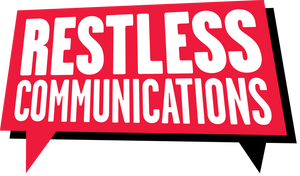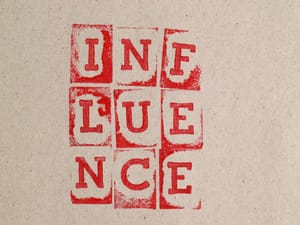Insincerity stinks, and your readers can smell it a mile off. If you don’t care about your subject matter, why on earth should they?
When footballers Fábio Silva and Christantus Uche posted identical farewell messages to their former clubs, fans quickly mocked their cut-and-paste efforts.
As a Wolves supporter, baffled by the millions my team wasted on Silva, this AI-generated/templated message “from the heart” sums up his contribution to the club.
But it's not only footballers that are guilty of tin-eared communications.
There's a rush to the bottom when it comes to both sincerity and quality when it comes to communications.
Something described as 'good enough' will never be 'good enough'.
It needs to be original. Honest. And brilliant.
Clients don't pay for 'good enough'. As consultants, we always aim higher.
In our work on content planning, we stress the value of getting under the skin of whatever you’re working on. So, do your research!
That’s the same whether you’re writing about sport, science or train timetables. You can only tell a compelling story when you know your subject inside out.
Can you outsource your understanding to ChatGPT?
AI is a fantastic tool to help writers. But, as a comms professional, you need to know when to switch from autopilot to manual.
Good communicators have to be part detective, part planning nerd and part psychologist. It helps if you’re a bit obsessive and can string short, clear sentences together.
Imagine you have just 30 seconds to explain what you’re working on to your mum (generally your toughest critic). If you can’t do that, you don’t know the subject well enough.
You need to gather more information and evidence. No amount of prompts on ChatGPT will help. You have to listen to the experts involved.
And, when the stakes are high, these AI communications shortcuts are more likely to burn trust than save time.
"It is tempting, if the only tool you have is a hammer, to treat everything as if it were a nail," warned psychologist Abraham Maslow (the Hierarchy of Needs guy).
Canada’s Metrolinx learned this lesson the hard way. After a Coldplay gig left GO Transit passengers stranded, it spat out AI-generated apologies.
Instead of defusing anger, it amplified it. The concert-goers wanted empathy. Instead, they got a robot with only a generic understanding of their situation.
Within hours, the post was pulled. And the company imposed a ban on AI for all customer-facing messages.

Seven questions every writing brief should answer
It isn’t ChatGPT that's the problem...it’s failing to nail what you MUST know before writing. Every great story begins with a solid brief.
Here are the basic ingredients you need and the questions you need to answer:
1) Deliverables
What exactly are you expected to produce? A LinkedIn post, a web page or a full-blown e-book?
2) Goals
What are you trying to achieve? Set SMART goals (specific, measurable, achievable, realistic and time-limited).
3) Audience
Who are your readers? Where are they when they read it, and what emotional state are they in? How much knowledge do they already have?
4) Call to action
What do you want this audience to think, do or say as a result of your words? Complete this sentence: When they finish reading, my audience will…
5) Background
Can you explain the project to your mum? Do you know what makes the project unique, where it comes from, and everyone involved?
6) Context
Who else is writing about the subject? What kind of things are they saying about it? Are you bringing something new to the party?
7) Deadlines
When does the first draft need to be delivered? What is the approval process? And when does it have to be signed off?
Starting with a clear brief and doing thorough research helped us deliver powerful campaigns, such as helping the NHS explain change or winning hearts and minds in a post-truth world.
To mangle the cliché, fail to brief and you're briefing to fail.






